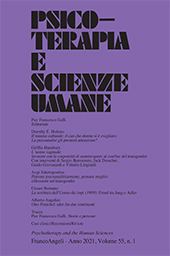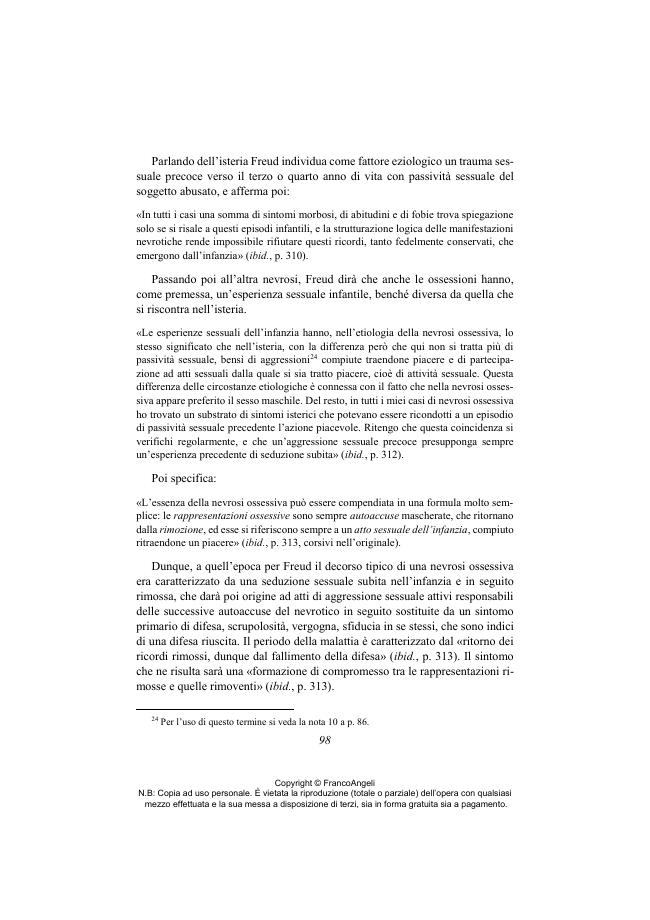La scrittura dell'Uomo dei topi (1909) : Freud tra Jung e Adler
77-118 p.
Attraverso una rilettura del caso clinico dell'Uomo dei topi di Freud del 1909, questo scritto si propone di dimostrare due tesi. La prima, che nella stesura del caso clinico Freud fu influenzato non solo da Jung, come ha sostenuto Mannoni (1969), ma anche dal pensiero che Adler aveva espresso in due relazioni alla Società Psicoanalitica di Vienna. In una di queste espose il caso di un paziente ereutofobico la cui infanzia aveva molti punti di contatto con quella del paziente di Freud, e nell'altra affrontò il tema del sadismo nella vita normale e nella nevrosi.
Alcuni aspetti di queste relazioni sono rintracciabili nella scrittura di Freud. La seconda tesi sostiene che Freud non era in grado di mantenere la promessa, fatta all'inizio del suo scritto, di sviluppare le teorie del 1896 contenute in Nuove osservazioni sulle neuropsicosi di difesa perché nel frattempo aveva abbandonato la teoria del trauma sessuale che costituiva il perno di quelle teorie, e il trauma sessuale non svolgeva più alcun ruolo eziologico nel suo caso clinico, analogamente al caso clinico esposto da Adler. [Testo dell'editore].
Through a rereading of Freud's Rat Man's case of 1909, two theses are advanced. The first one asserts that, when drawing up this clinical case, Freud was influenced not only by Jung, according to Mannoni (1969), but also by claims Adler maintained in two lectures he read at the Vienna Psychoanalytic Society: in the first one he presented an ereutophobic patient whose childhood had many similarities with that of Freud's patient; the second one concerned the aggressive drive in life and in neurosis. Some aspects of these lectures are surfacing in Freud's writing. The second thesis argues that Freud was not able to keep the promise he had put forward in his Introduction to the clinical case to develop his first observations on the subject, published in 1896 (the paper Further Remarks on the NeuroPsychoses of Defence), because in the meantime he had given up his traumatic theory that was the kernel of his sexual etiology of neuroses.
Hence sexual trauma lost his relevance in the Rat Man's neurosis, and childhood sexual experiences became irrelevant in the case history like the many sexual infantile experiences of Adler's patient were meaningless for his neurosis. [Publisher's text].
Ist Teil von
Psicoterapia e scienze umane : LV, 1, 2021-
Artikel aus derselben Ausgabe (einzeln erhältlich)
-
Informationen
ISSN: 1972-5043
THEMENBEREICHE
KEYWORDS
- Uomo dei topi, Jung e Adler, Sessualità infantile, Teoria traumatica, Sadismo nella nevrosi
- Rat Man, Jung and Adler, Infantile sexuality, Theory of trauma, Sadism in the neurosis



